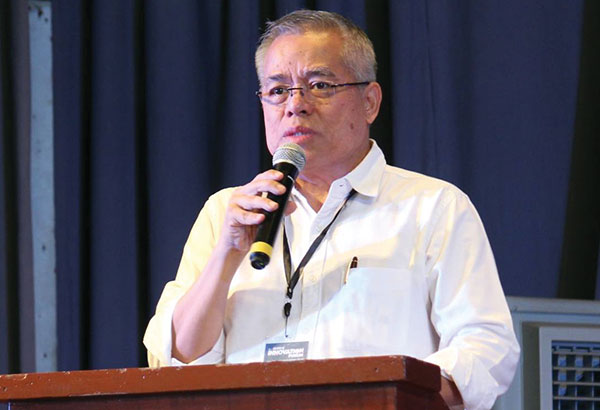Philippines aims to improve ease of doing business by 2022
MANILA, Philippines — In the face of intense competition among economies in providing better business climate, the Philippines is keeping its “ambitious” target in terms of ease of doing business after its latest global ranking dropped significantly despite its improved score.
In the World Bank Group’s Doing Business 2018 report, the Philippines’ ranking plunged 14 notches to 113th from the previous 99th spot across 190 economies.
The World Bank, however, said the current ranking is not comparable to the one published in the Doing Business 2017 report “because of methodology refinements.”
According to Trade Secretary and National Competitiveness Council chair Ramon Lopez, the government is still eyeing to reach the “top 20 percent” of 190 countries tracked by World Bank before President Rodrigo Duterte ends his term in 2022.
“It’s an ambitious target but we will still try to do it,” Lopez told a press conference on Thursday.
“It’s time to improve our target… parang aiming for the stars tayo,” he added.
“In other words, achieving all those right number of procedures, right number of cost per capita—those targets are the ones we’ll seriously consider.”
On the distance-to-frontier metric basis, the Philippines’ score saw a slight improvement as it went from 58.32 in Doing Business 2017 to 58.74 in Doing Business 2018. However, the country’s 2018 DTF was below the average of 62.7 across East Asia and Pacific economies.
The DTF measures the distance of each economy to the “frontier,” which represents the best performance observed on each of the indicators across all economies, according to World Bank.
Asked if it is “safe” to assume that the Philippines’ ranking will recover, NCC co-chairman for the private sector Bill Luz—who joined Lopez in the same news conference—said: “Nothing is safe because the other countries are also moving.”
“The higher you move up, the competition will get tougher. We have to push the score,” Luz added.
Meanwhile, for Lopez, the Philippines won’t pay much attention to rankings as the government focuses more on improving its score.
“Ang importante satin actually ‘yung score natin will jump to… I think the highest now is somewhere to 70 plus to 80 plus. So ‘yon ‘yung target natin,” the trade chief said.
“The ranking will be secondary because the bottomline, ‘yung score kasi reflects the ease of doing business na ini-implement natin,” he added.
“If you hit the highest score, you’re up there in the ranking. But even without looking at the ranking, you know that you are providing ease of doing business.”
According to the World Bank, the country stands out regionally in the Resolving Insolvency component, with a global rank of 59th.
Over the past year, the report said the Philippines also implemented two key reforms to improve the business climate for small and medium enterprises. These are in the areas of getting electricity connection and paying taxes.
Despite these continued reforms, however, the World Bank said small and medium-sized businesses still face significant regulatory challenges in the Philippines, leaving room for further improvements especially in the areas of starting a business, enforcing contracts and protecting minority investors.
In a statement on Wednesday, the NCC said the impact of improvements introduced by the Duterte administration in the second half of 2016 “may not have been fully experienced yet” by the businessmen surveyed during the first five months of 2017.
It also listed 10 priority projects that must be implemented to improve the country’s ranking.
“Improving ease of doing business in the Philippines is an endeavor that involves the Executive, Legislative, and Judicial branches of government. It is a whole-of-government effort,” the NCC said.
Globally, New Zealand topped the Doing Business 2018 report, followed by Singapore, Denmark, Korea and Hong Kong. Completing the top 10 are the US, UK, Norway, Georgia and Sweden.
The Doing Business report is an annual publication of the World Bank, which reviews regulations that enhance or constrain business activity.
Source: http://www.philstar.com/business/2017/11/02/1754938/philippines-aims-improve-ease-doing-business-2022


 English
English




